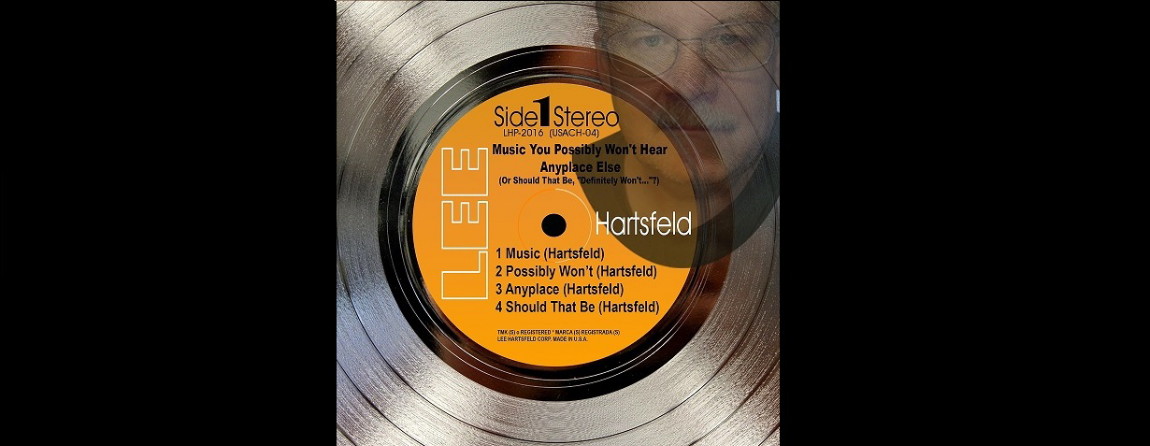My guess is that (Jaques) Fontanna's A Tribute to the Fabulous Dorseys is the least of the budget cash-ins--er, salutes--to the late Jimmy and Tommy to appear in the latter half of 1957 (though Coronet's effort seems unusually tacky, even by dollar-bin, er, standards). Jimmy had left us in June, 1957, and brother Tommy had died in November of 1956. So, it was a race to the racks. Other low-to-no-budget tribute LPs appeared on Broadway, Hollywood, Sutton, Omega, Pickwick, Tops, Crown, Somerset, and of course Promenade (SPC). Not to mention the tribute packages on RCA (naturally), Mercury, and other "actual" labels. Behold the bargain batch, in part:

In September, 1957, Jimmy Dorsey had a decent-sized (#39) posthumous hit with June Night, whose absence here leads me to guess that this rush job was sped onto the (tape) spindles circa August. My reasoning: The early-1957 Jimmy Dorsey hit (a huge one) So Rare is included, but not June Night, the posthumous Top 40 hit (of September) for the same leader. That would put this release date at circa August, 1957. Otherwise, why wouldn't Palace/Masterseal/Remington have added a junk-job June Night, too? Of course, I'm operating under the notion (delusion?) that the cheap operations engaged in any form of planning whatsoever.
Most of today's twelve tracks were associated with Tommy Dorsey: Boogie Woogie, Swing Low, Marie, Swanee River, Opus No. 1, I'll Never Smile Again, Song of India, and (of course) I'm Getting Sentimental Over You. Jimmy: Breeze and I, So Rare, and Green Eyes. As for the clunky Sy Oliver-esque Battle Hymn of the Republic, I can't establish a Dorsey connection, save that the number also appears on the Promenade and Broadway Tributes. Maybe its Dorsey association is a rack-jobber urban legend.
The unidentified vocalists aren't bad, despite a painful out-of-range moment in Breeze and I, and, on Green Eyes, a Helen O'Connell imitator whose headphones must have been on tape delay. She needed to drop the inflections and do another take, but extra takes cost money, so...
The Palace label is related to Remington, Masterseal, and Paris, but discovering this factoid at Discogs is an exciting journey. At Discogs, we learn that Palace's parent label was Buckingham Records, whose parent label was Masterseal, whose parent label was Remington, whose parent label was Remington Records, Inc. The latter evidently being the end (or top) of the lineage.
So... Palace's parent-parent-parent label was Remington Records, Inc. And there were a number of Remington Records, Inc. sublabels (and sub-sublabels), including the Remington sublabel Paris International, Inc. the parent label of Paris. Whatever I just typed.
The album's chief--and most endearing--shortcomings include musicians either not ideally suited (or ideally rehearsed) to tackle the charts, a generally awkward feel, a few inept intros (Green Eyes, especially), and the total bombing of the Helen O'Connell slow-swing portion of Eyes. At first, I thought the problem was with the ersatz Helen, but in fact she's fine--almost terrific--but the band, for some ungodly reason, is playing a Bolero-style rhythm which clashes with the singer's swing inflections. In the Annals of Dumb Band Chart Choices, this moment should be graced with its own special display.
And I love So Rare, maybe because it's the essence of a cheap-label knockoff: "Well, we barely got through that one. Great job!" It has "cash-in" written all over it (luckily, my Spin Cleaner took care of that, though I had to change the water), and it's delightfully almost-there. The best parts of the J. Dorsey original were probably the dramatic opening and closing sections--here, they're these moments are stripped of their inspiration via a lazy transcription. Why I find a dumbed-down So Rare so cool is so puzzling to me. I guess that, once bitten by the junk-label bug, there's no cure.
Oh, and there's the dreadful vocal chorus on Marie--no fault of the singer, but more the draggy backing of the percussionist, who sounds like he's 1) half-awake, 2) angry at the gig and thus determined to ruin any semblance of swing, 3) both, or 4) listening to the orchestra on delayed feed. But had this album been competently carried out, it would be just another middling memorial of the dollar-bin kind, and not nearly as diverting (even as it diverts from the tone of the originals). And, again, I'd have to pick the two-different-pages close to Green Eyes (a fitting sendoff) as the most genuinely hilarious moment here. And, again, the tragedy is that the singer nails Helen O'Connell's classic vocal, only to be tripped up by the backing. The insertion of Ravel was clearly a choice made while rushed or drunk--or both. At any rate, there's too much rubato in the O'Connell-esque vocal to allow for a strict triplet backing, but the mark is so memorably missed, it's one of the all-time best budget botches in my book.
The LP condition is pretty iffy, forcing me--for once--to bypass VinylStudio's declicker filter, since it was removing tiny portions of the audio. First time ever, and I imagine it's because the mastering was marginal to start with--it may not sound that much better in a clean copy, but I'm too cheap to find out. I manually removed the worst of the clicks and pops: What remains adds junky provenance to this labor of quick and cheap profit. But I'll need to at least get my hands on the SPC and Pickwick tribute knockoffs (unless I already have them), if only to hear their versions of So Rare, though I imagine those are too close to competency to begin to compete. Or, when is viability not a virtue?
DOWNLOAD: A Tribute to the Fabulous Dorseys--(Jacques) Fontanna and His Orch. (Palace M-707; 1957)
Boogie Woogie
Swing Low Sweet Chariot
Breeze and I
Battle Hymn of the Republic
Marie
Swanee River
Opus No. 1
I'll Never Smile Again
Song of India
So Rare
I'm Getting Sentimental Over You
Green Eyes
Lee













